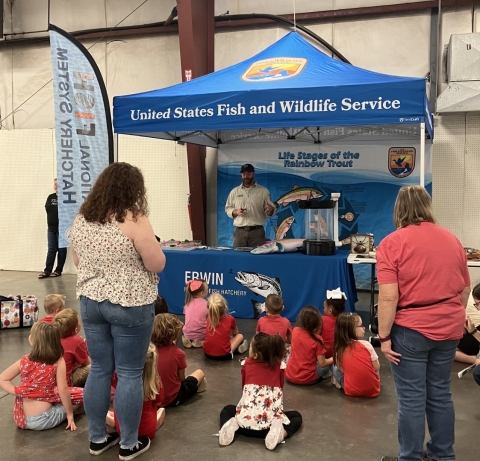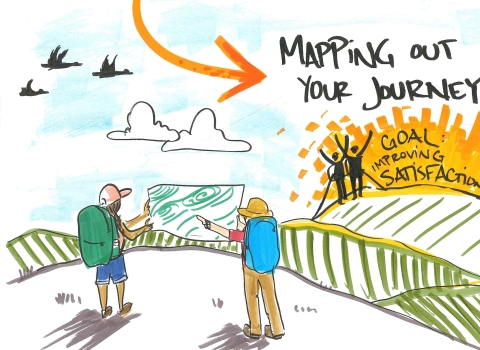Located in Eastern Tennessee, Erwin National Fish Hatchery has served in some form of coldwater salmonid production, fish or eggs, since it was established in 1897.
The hatchery currently plays a key role in supplying around 18 million disease free rainbow and brook trout eggs annually as part of the U.S. Fish and Wildlife Service National Broodstock Program. Erwin also supports recovery of imperiled and at-risk species like freshwater mussels and pollinators through propagation programs and habitat restoration.
Since shouting out this great hatchery information from a nearby Appalachian Mountain top wouldn’t reach nearly enough people, hatchery staff participate in numerous outreach and events each year to help share the great work that takes place. From school presentations, to setting up fishing derbies, and working at outdoor camps, festivals, and kids adventure days, Erwin staff works to communicate and educate others on their conservation efforts.
For example, June of 2023, hatchery staff participated in the annual Unicoi County 4-H camp. A five-day program that encourages 4th-6th graders to develop life skills and gain experience in a variety of engaging activities. During one of the days, campers participated in educational natural resource stations with Erwin being one of those stations. This resource day alone provided hatchery staff the opportunity to present information about the Service and the hatchery’s conservation initiatives to approximately 350 kids!
At the 4-H camp, as well as at other events hatchery staff participate in or organize, providing educational products like stickers and coloring books are of course always a hit. To add even more interest to Erwin’s exhibit areas and talks on fish biology and rearing techniques, hatchery staff welcomed the addition of a display showing the life cycle of a rainbow trout. This large and colorful display promises to be an attention getter, excitement builder, and discussion starter for many events to come.
More about the National Broodstock Program
This work was supported by a grant from the Fish and Aquatic Conservation Fish Funds program. Participation in outdoor activities like hunting, fishing, hiking, and birding connect people with nature and empower the next generation of conservationists.





